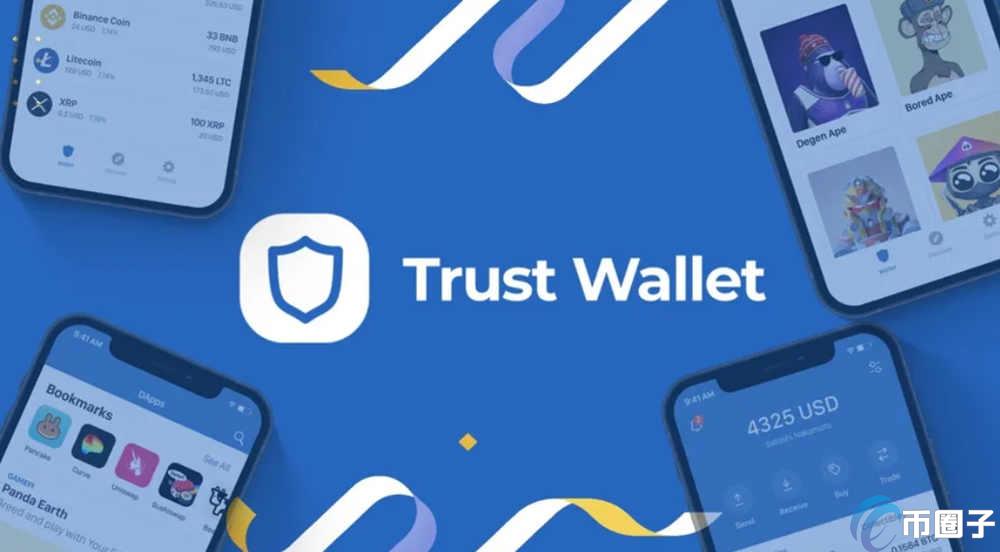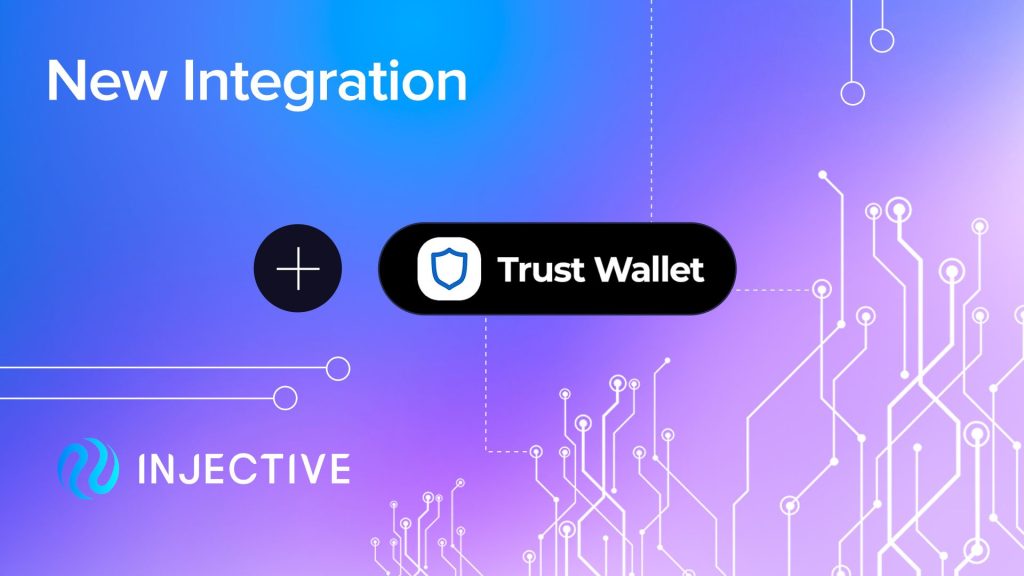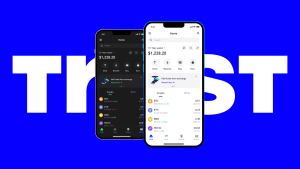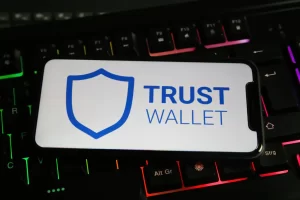Is Trust Wallet safe to download?
Yes, Trust Wallet is safe to download if you use official sources like the Google Play Store or Apple App Store. It offers strong encryption, private key storage, and a non-custodial model, ensuring full control over your funds.

Is Trust Wallet Safe for Cryptocurrency Storage?
How Trust Wallet Ensures Security for Your Funds
- Non-Custodial Wallet: Trust Wallet is a non-custodial wallet, meaning it doesn’t store your private keys on its servers. You alone have control over your keys, ensuring full ownership and security of your crypto assets.
- Secure Backup Options: Trust Wallet provides a recovery phrase (12-word seed phrase) that allows you to restore your wallet if you lose access. This phrase should be stored safely, as it is the only way to regain access to your funds.
- Multi-Layered Security: Trust Wallet offers features like biometric login (fingerprint or face recognition) to secure access to your wallet. This adds an extra layer of security, especially for mobile devices.
The Role of Encryption in Trust Wallet’s Security
- End-to-End Encryption: Trust Wallet uses end-to-end encryption to secure your private keys. This means your keys are stored only on your device and are never exposed to external servers or anyone else, maintaining privacy and security.
- AES Encryption for Sensitive Data: Trust Wallet uses AES (Advanced Encryption Standard) encryption to protect your sensitive information, such as transaction data and wallet details. This ensures that even if your device is compromised, your data remains protected.
- No Access to Private Keys: Trust Wallet’s design ensures that the app never has access to your private keys or recovery phrase. Only you can unlock and control your funds, preventing any unauthorized access from the app itself.
Trust Wallet Security Features You Should Know
What Makes Trust Wallet a Secure Option for Crypto Users?
- Non-Custodial Nature: Trust Wallet is a non-custodial wallet, meaning you retain full control over your private keys. This gives you ownership of your funds, reducing the risk of hacking or theft from third-party platforms.
- Decentralized Storage: Your private keys are stored locally on your device, never on centralized servers, preventing potential breaches and unauthorized access by hackers.
- Built-in Security Measures: Trust Wallet integrates features like biometric authentication (fingerprint or facial recognition) and PIN protection to secure your wallet from unauthorized access.
How Trust Wallet Protects Your Private Keys
- Encrypted Local Storage: Trust Wallet encrypts your private keys locally on your device. They are never shared with external servers, making it nearly impossible for hackers to access them remotely.
- 12-Word Recovery Phrase: When you set up Trust Wallet, you are given a 12-word recovery phrase that serves as the only backup to your wallet. This phrase is essential for restoring access to your funds if you lose your device or forget your password.
- No Access by Trust Wallet: The app does not store or have access to your private keys or recovery phrase. Only you, with your secure backup phrase, can recover or access your wallet, making it more secure than centralized solutions.

How to Download Trust Wallet Safely
Official Sources for Trust Wallet Downloads
- Google Play Store: Always download Trust Wallet from the official Google Play Store for Android devices. This ensures you are getting the latest version of the app and reduces the risk of downloading a malicious app.
- Apple App Store: For iOS users, Trust Wallet can be safely downloaded from the official Apple App Store. Avoid third-party app stores to prevent downloading potentially harmful versions of the app.
- Trust Wallet Official Website: You can also visit Trust Wallet’s official website for direct download links and installation instructions, ensuring you are getting the authentic app.
How to Avoid Fake Trust Wallet Apps
- Check Developer Information: Ensure that the developer listed on the app store is Trust Wallet, Inc. Fake apps often impersonate legitimate ones but have slightly altered developer names or logos.
- Read Reviews and Ratings: Check user reviews and ratings on the app store before downloading. Low ratings or negative reviews can indicate that the app is fake or has security concerns.
- Look for the Verified Badge: On official app stores, Trust Wallet should have a verification badge indicating that it has been approved for distribution. If an app doesn’t have this, it’s best to avoid it.

Trust Wallet and Privacy: Is Your Data Safe?
How Trust Wallet Protects Your Privacy
- No Personal Data Collection: Trust Wallet does not collect or store any personal data from users. It operates on a privacy-focused model, where user information like names or email addresses is not required to use the app.
- Local Data Storage: All sensitive data, including private keys, is stored locally on your device, ensuring that no personal or financial information is ever transmitted to external servers.
- Anonymous Transactions: Trust Wallet supports anonymous transactions, meaning your transaction history and crypto balances are not tied to your identity. This adds an additional layer of privacy when using the wallet.
The Non-Custodial Model of Trust Wallet Explained
- You Control Your Keys: Trust Wallet is a non-custodial wallet, meaning you retain full control over your private keys. Only you have access to them, ensuring that your funds are never controlled by a third party.
- No Centralized Data Storage: Unlike custodial wallets, Trust Wallet does not store your data or private keys on central servers. This reduces the risk of hacks and unauthorized access to your funds.
- Privacy by Design: The non-custodial nature of Trust Wallet means that your financial transactions are decentralized and secure. There is no intermediary to monitor or control your activities, enhancing privacy for all users.

Trust Wallet’s Security vs. Other Wallets
How Trust Wallet Stacks Up Against Other Wallet Options
- Non-Custodial vs. Custodial: Unlike many wallets offered by centralized exchanges, Trust Wallet is non-custodial, meaning you control your private keys and funds. Other wallets often rely on third parties to manage your keys, which increases the risk of hacks or theft.
- Private Key Management: Trust Wallet ensures that private keys are stored locally on your device, offering a higher level of security. Other wallets may store keys online, making them more vulnerable to cyber-attacks.
- Decentralized Design: Trust Wallet operates on a decentralized model, meaning there is no central authority controlling your funds. Many wallets from centralized platforms, on the other hand, may limit access or freeze your assets under certain conditions.
Key Differences Between Trust Wallet and Centralized Exchanges
- Control Over Funds: In centralized exchanges, the platform controls your funds and private keys, meaning they could be frozen or hacked. With Trust Wallet, you have full control over your private keys, ensuring that only you can access your funds.
- Security Risks: Centralized exchanges are more likely to be targeted by hackers due to the concentration of funds in one location. Trust Wallet, as a decentralized wallet, is less attractive to hackers because each user controls their individual assets.
- Privacy and Anonymity: Trust Wallet offers greater privacy and anonymity, as it doesn’t require personal information or a third party to manage transactions. Centralized exchanges typically require identity verification (KYC), which compromises user privacy.





